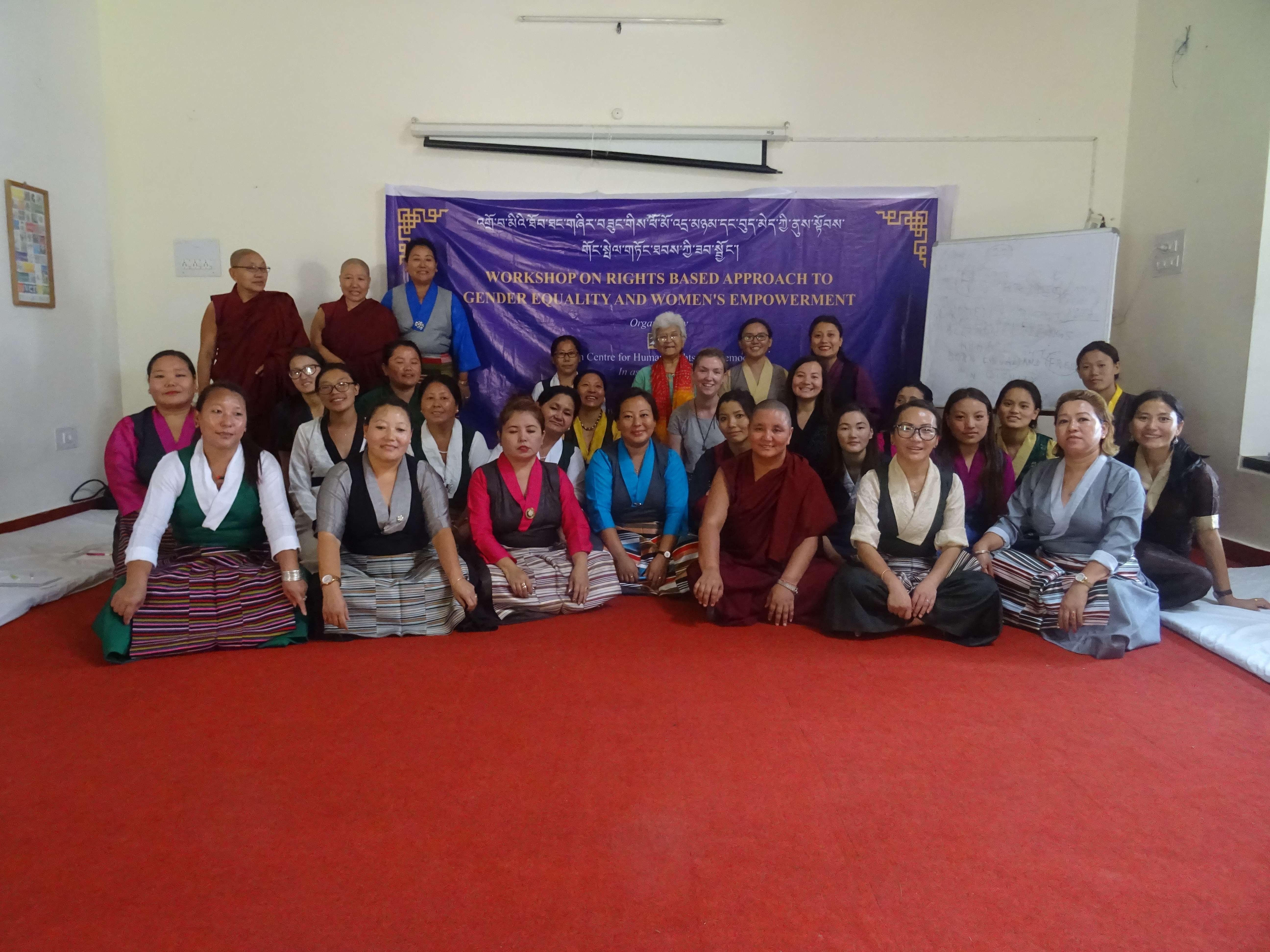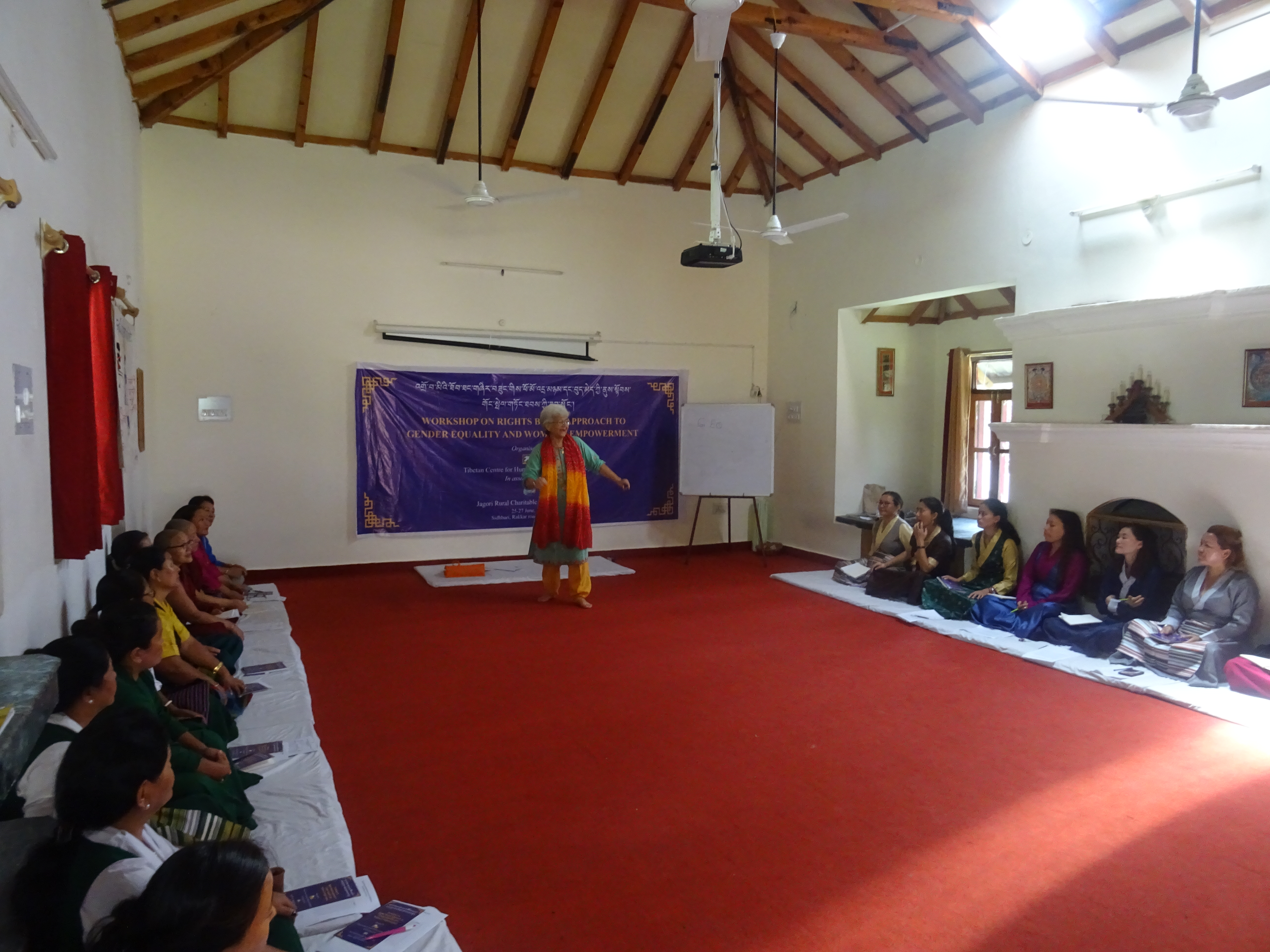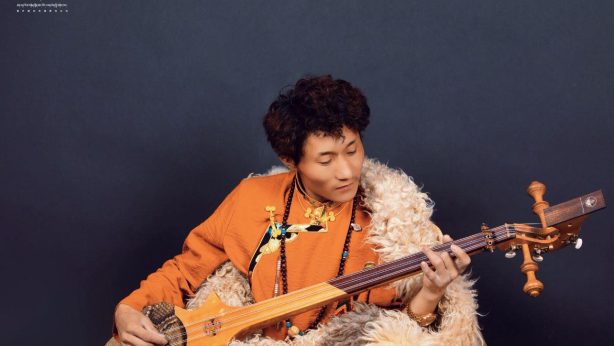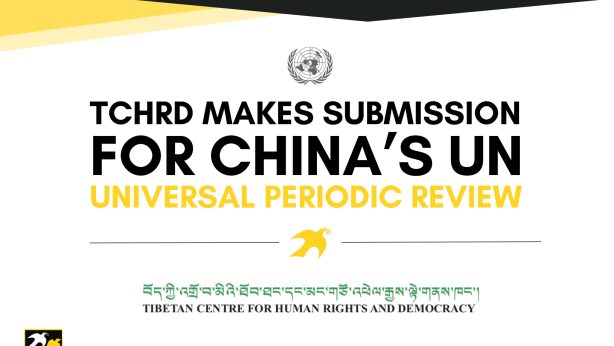TCHRD organizes workshop on rights-based approach to gender equality and women’s empowerment
The Tibetan Centre for Human Rights and Democracy (TCHRD) in association with Jagori Grameen organised a three-day workshop on the ‘Rights-based Approach to Gender Equality and Women’s Empowerment’ from 25 to 27 June 2018 at the premises of Jagori Grameen in Sidhbari near Dharamsala. A total of 30 participants including students, teachers, farmers, nuns, entrepreneurs, tour guides, human rights researchers, members of regional chapters of Tibetan Women’s Association and a trainer on gender sensitisation and gender equality travelled from different parts of India and Nepal to attend the workshop.
Efforts to address issues related to gender equality and women’s empowerment in exile Tibetan community have paid little attention to the rights-based approach or conducted in a framework that does not consider the international human rights law concerned with gender norms and stereotypes, that affects recognised human rights and fundamental freedoms. The three-day workshop was an attempt to fill this gap by creating awareness on the human rights that all women are entitled to under national and international laws while also providing space for freewheeling discussion on the elements of gender inequality in the exile Tibetan community. The workshop was led and facilitated by Kamla Bhasin, gender activist, writer and social scientist; Abha Bhaiya, founder and advisor of Jagori Grameen; Khadijah Faruqui, lawyer and activist; Tsering Tsomo, executive director, TCHRD; Tenzin Dawa, researcher, TCHRD; and Jennifer Duncan, intern, TCHRD.
In her session on gender and patriarchy on the first day of workshop, Kamla Bhasin addressed numerous issues around gender by introducing the participants to the definition of gender and the construction of gender. Participants learned about differentiating gender and sex and the fact that gender is not biological as in male or female but that gender is a social construct that attributes certain characteristics depending on one’s sex. In one of the group exercises, younger participants raised issues that they found discriminatory in their respective schools and colleges such as extra freedoms allowed to boys and strict curfew time for girls. Kamla said most of the issues that they had raised were largely related to patriarchy that is present in all societies. According to Kamla, there is nowhere in the world that is classified as a matriarchal society. There are few matrilineal societies but these are different from matriarchy. “The word patriarchy literally means the rule of the father or the patriarch. Patriarchy restricts women in various ways from productive power, reproduction, sexuality, mobility, resources and institutions,” said Kamla.
Khadijah Faruqui addressed national and international legislation and mechanisms that protect women’s rights against all kinds of discrimination and violence on the second day. Khadijah gave a thorough and compelling presentation on the Convention of the Elimination of All Forms of Discrimination Against Women (CEDAW) that is often referred to as the International Bill of Women’s Rights. In an activity called the ‘Wheel of violence’, participants divided themselves into four groups: each group was given a specific age bracket within which to discuss sexual and gender based discrimination and violence faced by women within these age groups. The numerous issues identified and discussed during this exercise included freedom of movement, sexual harassment in schools and in the community, lack of confidence and encouragement to pursue education. Participants shared how girls are often encouraged to get married at a much younger age than men and leave their job to bear children and look after the family. They also discussed at length the problem of gender-based violence such as victims of molestation or rape that are often forced to remain silent for fear of public shaming and in the name of honour and morality. Some discussed the lack of sharing household responsibilities between sons and daughters as well as between husbands of wives because more often larger responsibility is placed on women. Married participants shared the physical and mental abuses they are subject at the hands of their alcoholic and gambling husbands. Some also shared the discrimination faced by widowed, divorced or infertile women often marginalized by society in their old age. During the morning session on the third day, Khadijah introduced some of the mechanisms in the Indian legal system on sexual violence and the protection of women such as the Domestic Violence Act 2005.
In the next session, Tenzin Dawa introduced the participants to the rights and freedoms enshrined in the Charter for Tibetans in Exile and how it encompasses international legislation and other human rights and fundamental freedoms. Following this, Tenzin and Jennifer Duncan facilitated an activity called “The Problem Tree” wherein participants identified issues such as lack of female representation in politics, domestic violence, marriage, religion, preference for male child, menstruation, sexual abuse, gender constructs and discrimination between monks and nuns. They presented the main causes and roots of these issues to be social constructs, lack of sex education, outdated traditions and customs, patriarchy, religion, lack of shared household responsibilities and morality. The participants were given the chance to provide their own solutions to these problems in the branches. Solutions included sex education in schools, gender equality and sensitivity workshops, awareness of rights, implementation of laws, and documentary movies on subjects around equality, menstruation and psychological support.
The last session was devoted to participants reviewing the revised Tibetan Women’s Empowerment Policy issued by the Central Tibetan Administration in 2017. Each participant was handed a copy of the previous as well as the revised policy document. Participants then went through the provisions and offered their feedback or recommendations on how the policy can better serve Tibetan women.



